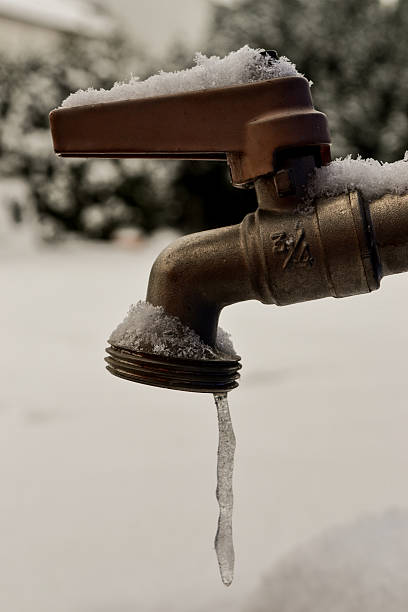Tips to Keep Your Pipes from Freezing Damage: Important Tips
Tips to Keep Your Pipes from Freezing Damage: Important Tips
Blog Article
How do you feel about Helpful Tips to Prevent Frozen Pipes this Winter?

Cold weather can damage your pipes, especially by freezing pipes. Right here's just how to avoid it from taking place and what to do if it does.
Introduction
As temperature levels decrease, the risk of icy pipes rises, potentially bring about expensive repairs and water damage. Comprehending just how to prevent frozen pipes is critical for homeowners in cool environments.
Avoidance Tips
Protecting prone pipes
Wrap pipes in insulation sleeves or use heat tape to protect them from freezing temperatures. Focus on pipelines in unheated or external areas of the home.
Heating strategies
Maintain interior spaces effectively heated up, specifically areas with pipes. Open cabinet doors to permit warm air to flow around pipes under sinks.
Just how to determine icy pipelines
Seek decreased water circulation from faucets, unusual odors or sounds from pipes, and noticeable frost on subjected pipelines.
Long-Term Solutions
Architectural changes
Take into consideration rerouting pipelines away from exterior walls or unheated areas. Add additional insulation to attics, cellars, and crawl spaces.
Updating insulation
Invest in top quality insulation for pipelines, attics, and wall surfaces. Appropriate insulation assists maintain regular temperatures and minimizes the risk of icy pipelines.
Securing Outdoor Pipes
Garden pipes and exterior taps
Separate and drain pipes yard tubes prior to winter. Set up frost-proof spigots or cover outdoor faucets with insulated caps.
Understanding Frozen Pipelines
What creates pipelines to freeze?
Pipes ice up when revealed to temperature levels listed below 32 ° F (0 ° C) for expanded durations. As water inside the pipelines ices up, it increases, taxing the pipe wall surfaces and possibly creating them to burst.
Risks and damages
Icy pipes can cause water disturbances, residential or commercial property damage, and expensive repairs. Burst pipelines can flooding homes and trigger comprehensive structural damage.
Indicators of Frozen Water Lines
Determining frozen pipelines early can avoid them from bursting.
What to Do If Your Pipes Freeze
Immediate activities to take
If you believe frozen pipes, maintain faucets open up to eliminate pressure as the ice thaws. Utilize a hairdryer or towels taken in warm water to thaw pipes gradually.
Final thought
Preventing icy pipes needs proactive procedures and quick actions. By understanding the reasons, signs, and safety nets, home owners can protect their pipes during cold weather.
Helpful Tips to Prevent Frozen Pipes this Winter
UNDERSTANDING THE BASICS: WHY PIPES FREEZE AND WHY IT’S A PROBLEM
Water freezing inside pipes is common during the winter months, but understanding why pipes freeze, and the potential problems it can cause is crucial in preventing such incidents. This section will delve into the basics of why pipes freeze and the associated problems that may arise.
THE SCIENCE BEHIND FROZEN PIPES
When water reaches freezing temperatures, it undergoes a physical transformation and solidifies into ice. This expansion of water as it freezes is the primary reason pipes can burst. As the water inside the pipe freezes, it expands, creating immense pressure on the walls. If the pressure becomes too great, the pipe can crack or rupture, leading to leaks and water damage.
FACTORS THAT CONTRIBUTE TO PIPE FREEZING
Low Temperatures: Extremely cold weather, especially below freezing, increases the risk of pipes freezing. Uninsulated or Poorly Insulated Pipes: Pipes located in unheated areas, such as basements, crawl spaces, or attics, are more prone to freezing. Insufficient insulation or lack of insulation altogether exacerbates the problem. Exterior Wall Exposure: Pipes running along exterior walls are susceptible to freezing as they encounter colder temperatures outside. Lack of Heating or Temperature Regulation: Inadequate heating or inconsistent temperature control in your home can contribute to frozen pipes. PROBLEMS CAUSED BY FROZEN PIPES
- Pipe Bursting: As mentioned earlier, the expansion of water as it freezes can cause pipes to burst, resulting in significant water damage.
- Water Damage: When pipes burst, it can lead to flooding and water damage to your property, including walls, ceilings, flooring, and personal belongings.
- Structural Damage: Prolonged exposure to water from burst pipes can compromise the structural integrity of your home, leading to costly repairs.
- Mold and Mildew Growth: Excess moisture from water damage can create a favorable environment for mold and mildew growth, posing health risks to occupants.
- Disrupted Water Supply: Frozen pipes can also result in a complete or partial loss of water supply until the issue is resolved.
WHY CERTAIN PIPES ARE MORE PRONE TO FREEZING
- Location: Pipes located in unheated or poorly insulated areas, such as basements, crawl spaces, attics, or exterior walls, are at higher risk of freezing.
- Exterior Pipes: Outdoor pipes, such as those used for irrigation or exposed plumbing, are particularly vulnerable to freezing as they are directly exposed to the elements.
- Supply Lines: Pipes that carry water from the main water supply into your home, including the main water line, are critical to protect as freezing in these lines can affect your entire plumbing system.
- Underground Pipes: Pipes buried underground, such as those connected to sprinkler systems or outdoor faucets, can be susceptible to freezing if not properly insulated.
https://busybusy.com/blog/helpful-tips-to-prevent-frozen-pipes-this-winter/

Do you appreciate reading up on How to prepare your home plumbing for winter weather? Try leaving a remark down below. We would be delighted to see your thinking about this post. We hope that you come back again in the future. If you enjoyed reading our page please don't forget to share it. Kudos for being here. Please pay a visit to our site back soon.
Visit Link Report this page